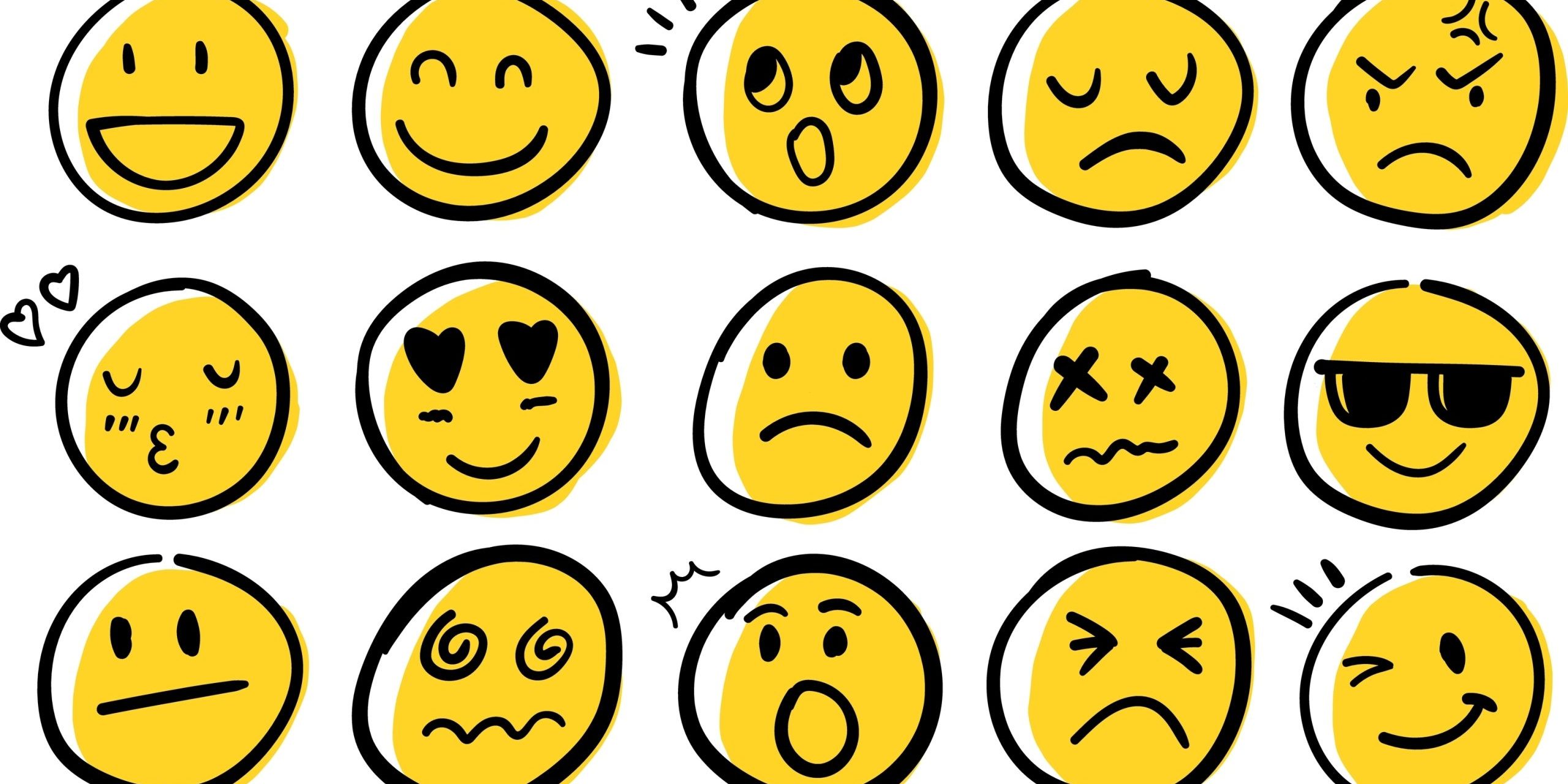I’ve been collaborating with several people close to me on strategies to build a framework to improve their emotional state and increase their happiness baseline (a baseline that is obviously not a constant).
I am very well aware that emotional conditions can significantly impact a person’s well-being, influencing their thoughts, behaviours, and overall quality of life. Big emotions like:
- Anxiety, one of the most common emotional conditions, is characterised by excessive worry, nervousness, or fear that can interfere with daily activities and manifest in physical symptoms like a racing heart or restlessness
- Depression is another prevalent condition marked by persistent sadness, hopelessness, and a loss of interest in once-enjoyed activities, often affecting sleep, appetite, and energy levels.
- Stress, a response to challenging situations, can be acute or chronic, leading to physical and emotional strain, including irritability, fatigue, and tension.
- Loneliness, a deep sense of isolation or disconnection from others, can be damaging even when surrounded by people, and chronic loneliness is linked to adverse mental and physical health effects; and
- Grief which is an intense emotional response to loss, such as the death of a loved one, a breakup, or a significant life change, often involving sadness, anger, and emotional exhaustion.
One of the significant areas around emotion I have been ignorant of is just how much emotional conditions like anxiety, depression, and stress affect people differently due to a combination of biological, psychological, and social factors.
Genetics play a role biologically, as many individuals are predisposed to be more sensitive to stress or more likely to develop anxiety or depression. Variations in brain chemistry, particularly in neurotransmitters like serotonin, dopamine, and norepinephrine, influence how people regulate emotions. Hormonal levels, such as cortisol (the stress hormone), can also affect how individuals respond to emotional challenges.
Psychologically, personality traits like resilience, optimism, and emotional stability influence how people cope with stressors. Additionally, coping mechanisms, which can be learned over time, vary from person to person. Some people adopt healthy coping strategies, such as exercise or mindfulness, while others may rely on avoidance or unhealthy habits. Past experiences, particularly trauma, can also shape emotional responses and coping strategies.
Socially, a person’s environment plays a crucial role. Having a strong support system can help individuals manage emotional distress, while those without such support may struggle more. Life experiences, upbringing, and socioeconomic status further influence emotional resilience, as does cultural background, which dictates how individuals express and handle emotions.
Situational factors, such as current stressors and life changes, can also impact emotional well-being differently depending on an individual’s unique circumstances. Access to resources like therapy, medication, and self-care opportunities also affects how someone manages their condition. With these factors interacting in complex ways, two people with similar experiences might respond to emotional challenges very differently—some may develop resilience. In contrast, others might struggle with long-term effects.
A recent podcast session in the car recently hit home that each person has a unique way of managing emotions based on their experiences, personality, and cognitive strategies. There is no one-size-fits-all approach. What has been working for me may not work for you. The podcast was Rich Roll interviewing Dr. Ethan Kross.
I like Rich Roll. He has some good energy. He’s an American ultra-endurance athlete, author, and podcast host known for transforming from an overweight, unhealthy lawyer to a top plant-based athlete. He gained widespread recognition after completing the Epic5 Challenge, which involved finishing five Ironman-distance triathlons on five Hawaiian islands in less than a week. A former competitive swimmer at Stanford University, Roll later struggled with alcohol addiction, which led to significant health issues. At age 40, he turned his life around, eventually becoming one of the world’s top ultra-endurance athletes. He has some cracking interviews where he interviews health experts, athletes, and thought leaders on topics like fitness, nutrition, and self-improvement.
The crux of his interview with Dr. Ethan Kross, a psychologist and expert in emotion regulation, emphasises that each person has a unique way of managing emotions based on their experiences, personality, and cognitive strategies. His research explores how individuals regulate emotions differently when dealing with negative thoughts or stress. Some people rely on distraction, shifting their focus away from distressing emotions, while others use reframing or cognitive reappraisal to change how they interpret an event. Some turn to social support, talking with trusted individuals to process emotions, while others engage in self-distancing, viewing situations from a third-person perspective to reduce emotional intensity.
Kross highlights the critical role of inner dialogue, or self-talk, in emotional regulation. How we talk to ourselves internally can exacerbate distress or help manage difficult emotions. Negative inner chatter can overwhelm emotions, whereas constructive self-talk can foster resilience. Emotional regulation is also influenced by cultural background, upbringing, and personal experiences, meaning what works for one person may not work for another. For example, some may find relief through journaling, while others prefer physical activity or mindfulness.
According to Kross, flexibility is key to effective emotional regulation. No single method works best for everyone or in every situation, so the ability to adapt strategies based on context is crucial. Understanding that each individual has a unique approach to managing emotions allows for more personalised mental well-being strategies. Instead of applying a one-size-fits-all method, Kross suggests experimenting with different techniques to find the best fit for you as an individual.
I am still playing around with the ingredients and what works for me. I will never stop testing and applying different components. In a previous post, I discussed my multidimensional concept encompassing various aspects of my new life and overall well-being. What will my future chart look like?
As my purpose in life becomes more apparent, I increasingly want to radiate calmness and positive energy that’s felt by those around me and authentically influence others. Hence, they become better versions of themselves. To inspire and educate others, helping them discover their passions and achieve their full potential. To strive to be a positive influence and a source of knowledge, always encouraging growth and lifelong learning. I must remain well aware that emotions are like rivers—some people build dams to control the flow, while others let the current take them wherever it pleases. For me, managing emotions has become a lifelong experiment, shaped by past wounds, small victories, and the quiet lessons hidden in everyday life. I know people who process pain through art, others who need a long run to clear their minds, and some who tuck their feelings away until they have the strength to face them. As for me, I balance between reflection and distraction—writing down my thoughts when they feel too heavy, replacing old habits with new ones, going after very challenging goals, practising mindfulness (even on a dirt bike), over-indexing nutrition, and drowning a busy mind in music when I need a break. It’s not always perfect, but it’s my way, crafted from experience, personality, and a little trial and error.
One of the most significant changes in my life, and one that I have no doubt will work for everyone, is putting a tremendous amount of effort into self-awareness. Self-awareness is a pillar of emotional regulation because it allows individuals to recognise, understand, and manage their emotions effectively. When people are self-aware, they can identify their feelings and why rather than being overwhelmed or controlled by them. This understanding helps them make intentional choices about how to respond rather than reacting impulsively.
Additionally, self-awareness provides insight into personal triggers, strengths, and coping mechanisms, making it easier to regulate emotions in a healthy way. Without self-awareness, emotions can feel unpredictable and challenging to control, leading to stress, conflict, or poor decision-making. By being in tune with your inner state, you can adjust your thoughts and behaviours, fostering emotional balance and resilience.
We live in our bodies and minds but take so long to know ourselves. What are you learning about yourself and your ability to regulate your emotions?


